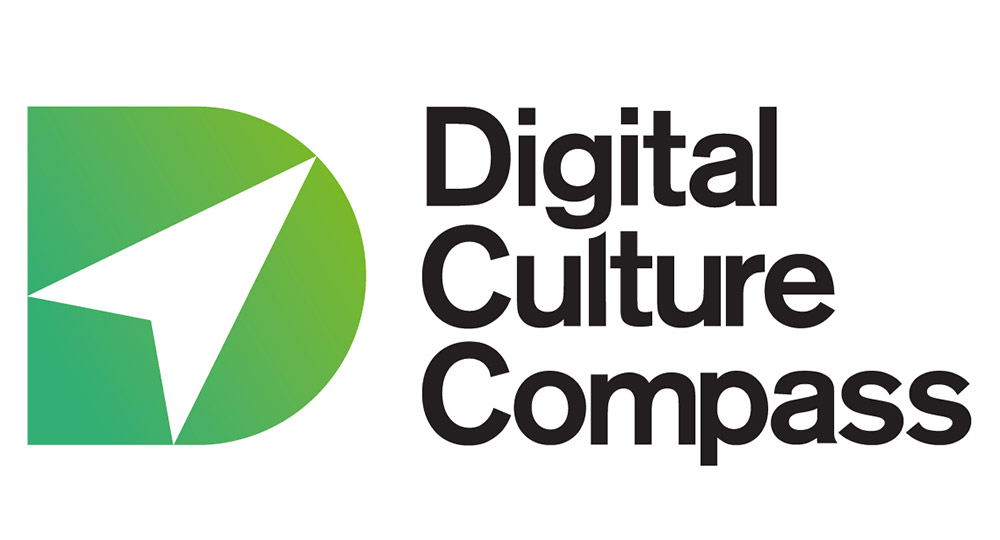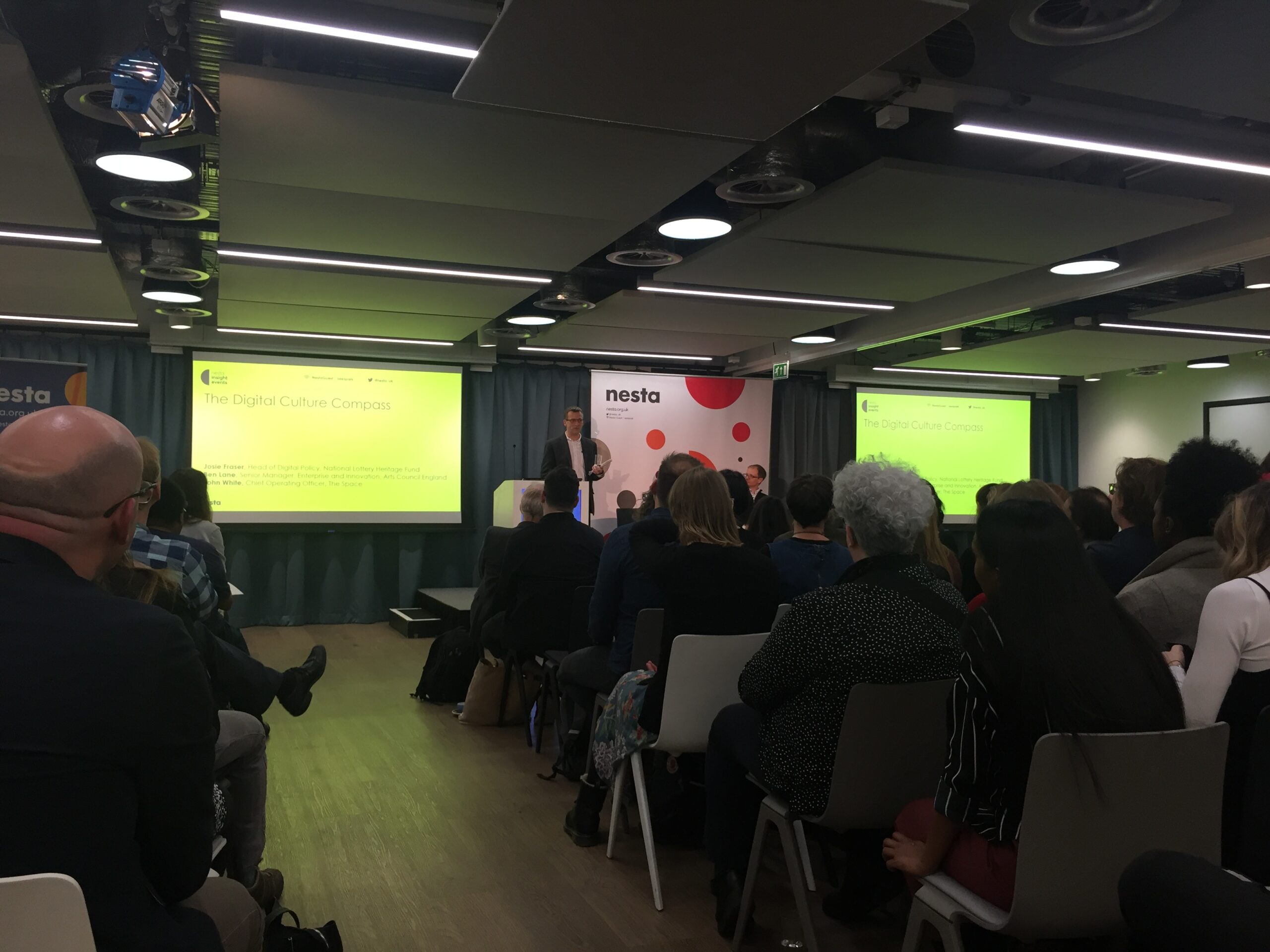
Digital Culture Compass Launch
We recently attended the Digital Culture 2019 event in London, hosted by Nesta and The Arts Council England. This event was a celebration of over a years hard work and determination into looking at how arts, culture and heritage organisations use digital practise in their workplaces and how best to implement measures to grow their sectors digitally. We attended the event after designing and building the Digital Culture Compass tool. The website and online tracker were built to help arts organisations measure their digital maturity and track their progress towards their digital goals.
This idea came about in response to the Digital Culture Project and the 2018 report by the Department for Digital, Culture, Media and Sport in which it was explained how vital it is for organisations in the UK to become more familiar with the digital facilities available to them. In a study composed by Nesta it is clear to see that organisations are agreeing that technology is an essential part of growing their business model – with 49% agreeing this compared to only 35% in 2013. This report aims to explore how culture and technology can benefit from one another. With the UK being one of the most exciting cultural destinations in the world with a plethora of world-renowned art galleries and museums, it is important that we highlight the areas within these sectors that need to be brought into the digital age. Creative industries and the digital sector are vital to our UK economy, with them contributing to over £130 billion in 2017. Another vital statistic from the Nesta report shows that organisations reporting that digital technology has a major positive impact on revenues and profitability has doubled from 2013, from 11% up to 22% in 2019.
Sectors such as arts, culture and heritage have still been left behind when it comes to the digital age but along with that comes the issue of prevalence. With there being 48 million internet users in the UK it is hard to compete for popularity without the use of social media or other digital platforms. That is why there is a large need for this report and the Digital Culture Compass tool as many organisations are becoming more hesitant when it comes to undertaking research and development compared to previous years. In 2014 33% of organisations asked said they engaged in experimentation and took risks with digital technology but that has dropped to 27% in 2019 – with one participant explaining “We are still playing catch up in digital display / exhibition technology so I think we can let other organisations test the water before we do!”.
With the expansion of businesses and the public sector in the past few years this is expected as there are a lot of people trying to keep up with the current digital market but this is not how we want people to feel. Letting other people do it first means that those people are going to be ahead of you when it comes to revenue and profits, playing catch up is not a suitable way of sustaining digital knowledge. That is what this tool is for, the Digital Culture Compass is designed to help any and all organisations better understand their digital skill-set and give them the opportunity to enhance it and benefit from having greater digital knowledge.
Developing digital skills is paramount in getting organisations to be more digital conscious, with the 2017 Digital Culture survey showing that 70% of organisations saw a positive impact from using digital technology to get across their mission. The Digital Culture Compass was created to help organisations understand their own digital capabilities and to set policies on how they can improve these. It is made up of the Digital Culture Code which is a set of guidelines which cultural organisations sign up for in order to prove their commitment to developing their digital maturity. The tool is designed in such a way that it is more of a continually used resource rather than a quick fix; it has been created so it can be fully customisable dependant on the prefered outcomes of the organisation as well as helping to keep a record of their digital maturity and helping to identify areas of improvement. It also enables users to export and share their data, this could be with other team members or anyone external – this gives it an opportunity to be used a wider context and for organisations to discuss their results with other team members without the need to have a computer or the internet to hand.
There are a range of other systems in place around the subject of the Digital Culture Compass supported by the Arts Council England, one being the Digital Culture Network which enables organisations to become involved in a range of workshops and engage in hand on support. There have already been many events held by the Digital Culture Network including one held by Haydn Corrodus, a tech champion for the south east, in which he delivered an Instagram workshop where he trained organisation members on the uses that the social media platform has as well as how to engage with their chosen audiences more directly using social media. The network events have been highly attended with over 150 people going to two of the events and the ACE, along with Google Arts & Culture, plan to roll-out a series of training programs across England to account for the growing demand of digital training.
This is opening doors for many organisations within the arts, culture and heritage sector and will help to give those organisations the help and guidance that they need to become more digitally mature. It is exciting to imagine the possibilities that this could bring to the UK and the interesting outcomes that will be created with the amalgamation of our digital and technological cultures.



